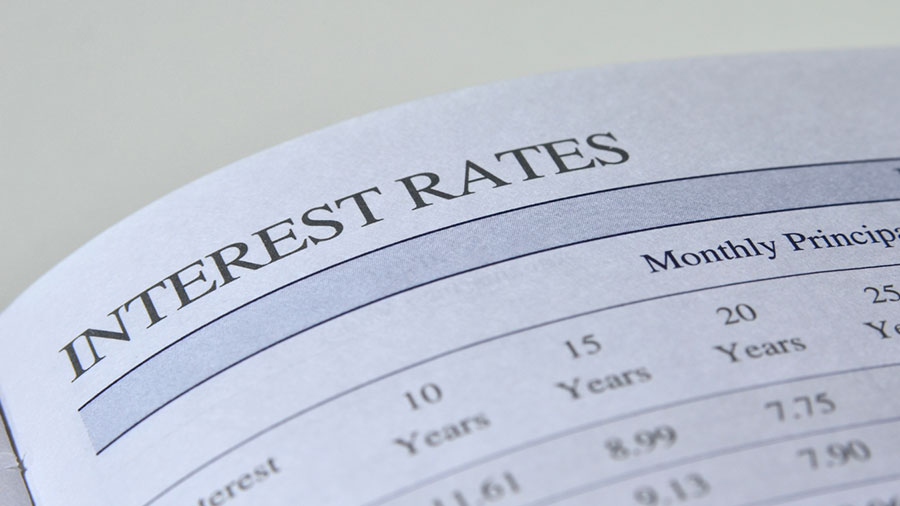Unsecured Business Loans – Get the Funds You Need Today!
Home » Unsecured Business Loans – Get the Funds You Need Today!
Imagine a business loan that doesn’t require collateral, offers fast approval, and provides the funds you need for various purposes. Sounds too good to be true? Welcome to the world of unsecured business loans! In this blog post, you will learn everything you need to know about unsecured business loans, their benefits, eligibility criteria, different types, costs, risks, and how to find the right lender for your needs.
Unsecured business loans offer quick access to funds without risking personal or business assets.
Interest rates and fees vary depending on creditworthiness, so compare lenders before taking out a loan.
Understand the risks associated with unsecured loans to get the best deal for your needs.

Business loans without collateral are an option for those seeking financing. These loans do not require any form of security. This makes them an attractive option for small business owners who want to access funds without risking personal or business assets. To qualify for an unsecured business loan, you’ll need a good credit rating, a solid financial history, and a convincing cash flow projection. The loan amount typically ranges from $5,000 to $500,000, depending on the borrower’s risk profile and ability to make repayments.
One of the main reasons why unsecured business loans are popular is their quick turnaround. Since no collateral is required, the approval process is usually faster than secured business loans. However, unsecured loans come with higher interest rates and shorter repayment terms compared to secured loans. In Australia, the repayment period for unsecured small business loans ranges from 3 months up to a maximum of 5 years.
The key features of unsecured business loans include shorter terms and higher interest rates compared to longer-term secured business loans. These loans are based on the borrower’s creditworthiness, making them an excellent choice for businesses with a good credit history and steady cash flow. Since no collateral is required, the lender might ask for a personal guarantee from the business owner or executive as a written promise to repay the loan if the business fails to make the payments.
It’s important to note that the interest rates of unsecured business loans are influenced by factors such as time in business, personal and business credit score, and cash flow. Therefore, maintaining a good credit history and ensuring steady cash flow can help secure a more competitive interest rate on an unsecured business loan.
Unsecured business loans can be used for a wide range of purposes, catering to various business needs. Some common uses include covering startup expenses, daily operations, equipment purchases, inventory, real estate, and debt consolidation. These loans are particularly useful for businesses facing unexpected costs or looking to invest in growth and expansion.
One of the main advantages of unsecured business loans is their flexibility in terms of usage. Business owners can allocate the funds wherever they see fit, enabling them to address specific challenges or seize new opportunities. This adaptability makes unsecured business loans an attractive financing option for many businesses.

Businesses must meet the minimum basic criteria set by the lender to be eligible for an unsecured business loan. Providing the necessary information is paramount to the success of your loan application. These criteria vary but generally include factors such as the business’s revenue, its operating duration, and its credit score. A good credit history is particularly important, making the lender feel more secure about providing the loan.
The application process for unsecured business loans can be quick and easy, especially with online lenders. For instance, the application process with a particular lender is entirely online, takes only a few minutes, and the funds could be in your account within 24 hours.
When considering eligibility for unsecured business loans, lenders consider the business’s revenue, how long it’s been running, and its credit score. A good credit history is crucial for securing an unsecured business loan, as it reassures the lender about the borrower’s ability to repay the loan.
Apart from a good credit history, lenders may also require proof of income and other financial documents to assess the business’s ability to repay the loan. It’s essential to clearly understand the lender’s eligibility criteria and gather the necessary documents before applying for an unsecured business loan to increase the chances of approval.
To ensure a successful application for an unsecured business loan, it’s important to submit the documents the lender requires. These may include financial statements, bank statements, and tax returns, among others. Review the lender’s documentation requirements and gather all necessary paperwork before submitting your application.
In addition to providing the necessary documents, having a clear plan for using the funds from the unsecured business loan is essential. Consider how the loan repayments will fit into your business’s cash flow and ensure you can comfortably afford the repayments before applying for the loan. This will not only increase your chances of approval but also help you manage your loan effectively.

Several types of unsecured business finance options are available to cater to businesses’ diverse needs. These include lines of credit, invoice financing, and short-term loans. Each type of unsecured business finance option serves a specific purpose and offers unique benefits, depending on the business’s requirements and financial situation.
Understanding the different types of unsecured business finance options can help you decide which option is best suited for your business needs. The following sections will discuss each type in more detail, including their key features, benefits, and drawbacks.
A line of credit is a business loan that offers flexibility and is ideal for medium and large businesses needing a cash flow solution. With a line of credit, you can spend as much or as little as you need, up to the credit limit, and you only pay interest on the amount you use. This flexibility allows businesses to manage their cash flow more effectively and access funds whenever needed.
However, a line of credit loan has certain drawbacks, such as potentially higher interest rates and the risk of overspending. Additionally, some lenders may require a personal guarantee from the business owner or executive, making them personally responsible for the loan repayment if the business fails to make the payments.
Invoice financing is a type of unsecured business finance that allows businesses to borrow against outstanding invoices. This financing option is particularly useful for businesses struggling with cash flow issues due to unpaid invoices, as it provides quick access to funds without the need for collateral.
Invoice financing can be an excellent solution for businesses unable to fulfil orders due to cash shortages. However, it’s crucial to consider the fees and interest rates associated with invoice financing before opting for this type of loan, as they can vary depending on the lender and the borrower’s creditworthiness.
Short-term unsecured loans are another type of unsecured business finance, typically borrowed for less than a year. These loans are popular among businesses looking to cover short-term expenses or bridge a gap in cash flow. Short-term unsecured loans offer quick access to funds without the need for collateral, and they often come with flexible repayment terms.
Despite their benefits, short-term unsecured loans also have drawbacks, such as higher interest rates and the risk of default. When considering a short-term unsecured loan, it’s essential to compare different lenders, understand the terms and conditions, and ensure the repayment plan is manageable for your business.

The interest rates and fees for unsecured business loans are usually higher than those for secured loans, as the lender takes on more risk. The exact interest rates and fees depend on the lender and the borrower’s credit score. Potential risks associated with unsecured business loans include higher interest rates, upfront fees, settlement or pre-payment fees, and difficulty qualifying.
When considering an unsecured business loan, it’s important to be aware of these costs and risks and compare different lenders to find the best rate and terms for your needs. Maintaining a good credit history and ensuring steady cash flow can secure a more competitive interest rate on an unsecured business loan.

Interest rates for unsecured business loans in Australia can range from as low as 7-9% p.a. up to a maximum of 26.50% p.a., depending on your creditworthiness and the lender. Various factors can influence interest rates, including creditworthiness, industry risk, inflation, loan amount and duration, collateral, and market conditions.
Fees associated with unsecured business loans may include:
An upfront application process fee.
An establishment fee.
A settlement or pre-payment fee.
It’s essential to carefully review different lenders’ interest rates and fees before deciding on the most suitable unsecured business loan for your needs.
Since the lender takes on more risk, unsecured business loans have higher interest rates and fees. As a result, borrowers may not be able to borrow as much as they would with a secured loan. Furthermore, unsecured loans may require more qualifications, making it harder for some businesses to obtain financing.
It’s crucial to carefully assess the potential risks associated with unsecured business loans and ensure that your business can manage the higher interest rates and fees. By comparing lenders and maintaining a good credit history, you can minimise the risks and secure the right unsecured business loan for your needs.

Choosing the right lender for your unsecured business loan is key to getting the best deal possible. Different lenders have different criteria for funding, documentation requirements, and interest rates, making it essential to compare lenders and find the one that best suits your business needs. By researching and comparing different lenders, you can save significant money in interest and fees.
Whether you’re considering online or traditional lenders, it’s crucial to understand their eligibility criteria, interest rates, loan terms, and associated fees before deciding. The following sections will discuss tips on comparing lenders and the differences between online and traditional lenders.
When comparing lenders for an unsecured business loan, consider factors such as interest rate, loan amount, repayment terms, eligibility requirements, and fees. Additionally, assess the lender’s evaluation of your business’s creditworthiness, which can impact the loan terms and interest rates offered.
There are some key differences between online and traditional lenders when it comes to unsecured business loans. Online lenders may offer faster application processes and higher interest rates, while traditional lenders may provide more personalised service and lower interest rates. Additionally, traditional lenders might require collateral for unsecured business loans, whereas online lenders might not.
Ultimately, the choice between online and traditional lenders depends on your business’s specific needs and financial situation. By understanding the differences between these lenders and comparing their offerings, you can make an informed decision and secure the right unsecured business loan for your needs.
In conclusion, unsecured business loans offer a flexible and accessible financing option for businesses without collateral. By understanding eligibility criteria, various types of unsecured business finance options, costs, risks, and how to find the right lender, you can make an informed decision and secure the right unsecured business loan for your needs. Remember to maintain a good credit history, ensure steady cash flow, and compare different lenders to minimise risks and maximise the benefits of unsecured business loans.
Yes, you can get an unsecured loan for your business. Unsecured business loans are designed to help businesses access the finance they need quickly without the requirement of providing collateral.
The lender assesses the loan based on your income, cash flow, and creditworthiness. You must ensure your credit and income requirements are satisfied.
Additionally, the lender must be secured somehow, like a personal guarantee from the business directors.
A unsecured business loan is a loan that doesn’t require any collateral to secure the loan. Instead, lenders will evaluate your company’s cash flow and creditworthiness to decide whether you should be approved or not.
This type of loan is riskier for lenders as they won’t have any property or assets to seize if you default on the loan, but it makes it easier for businesses to obtain financing without having to offer up their own assets.
To qualify for an unsecured loan, you’ll need a good credit score and a reliable source of income. You may also need to provide proof of employment and other financial documents.
Additionally, some lenders may require a guarantor.
Yes, unsecured loans carry a higher risk for lenders because they don’t have any security against nonpayment. As a result, borrowers often face higher interest rates on unsecured loan products.
